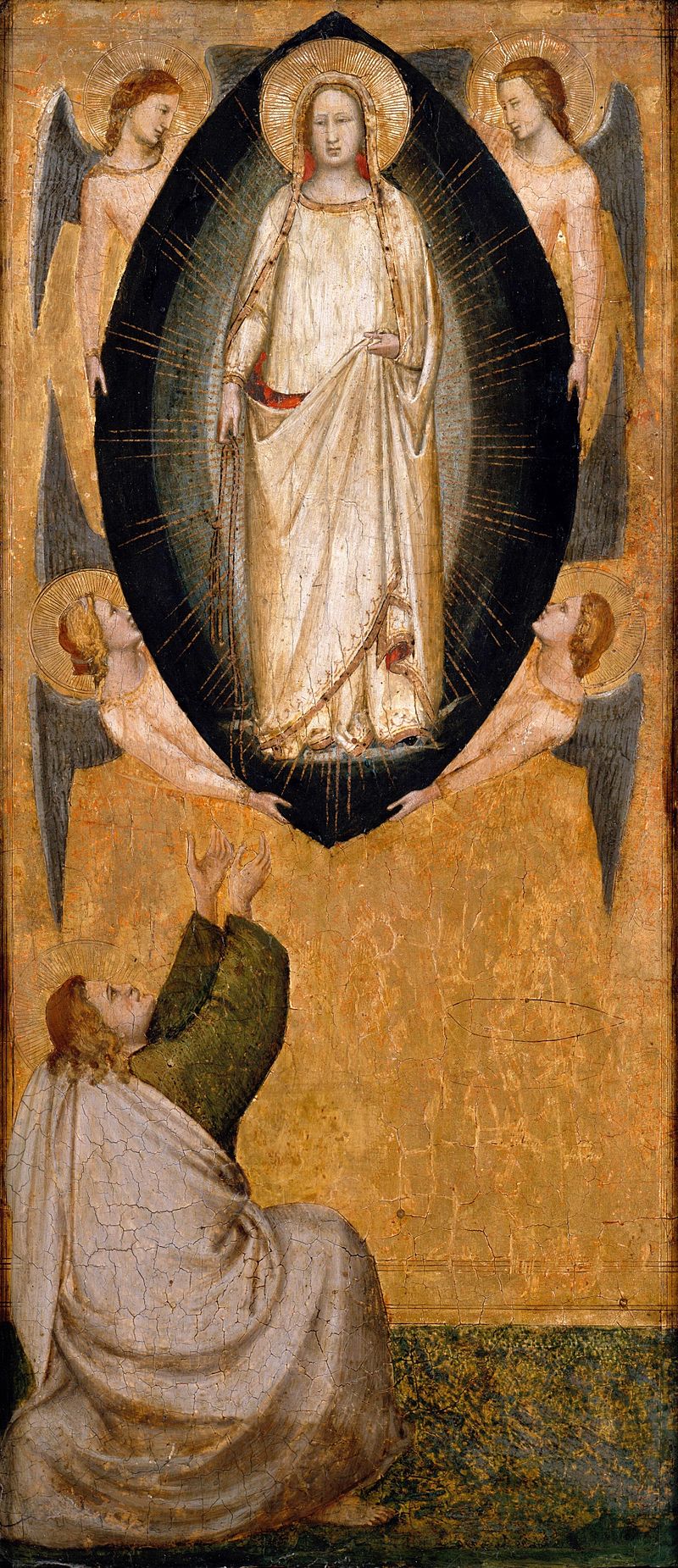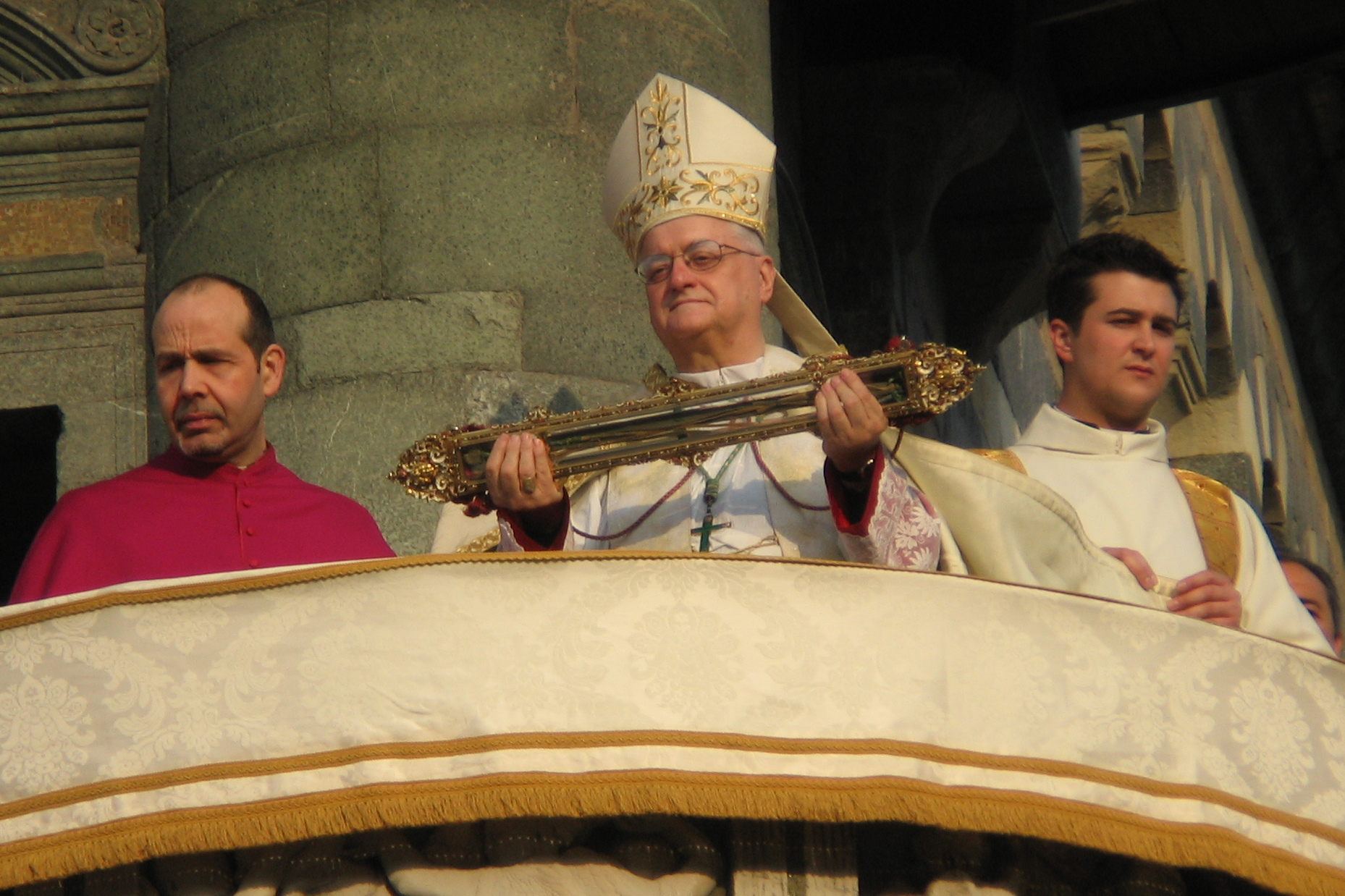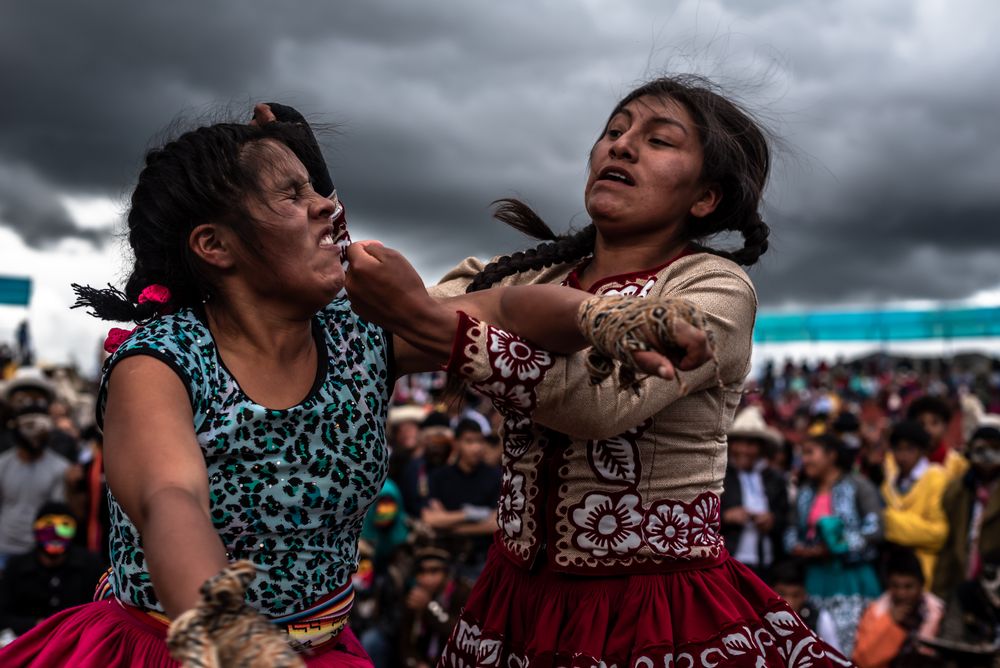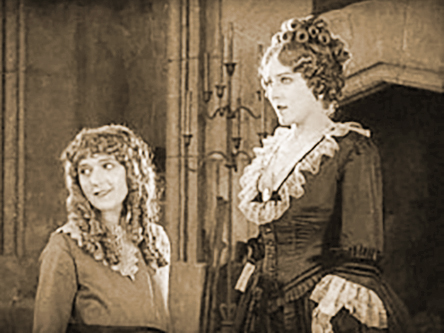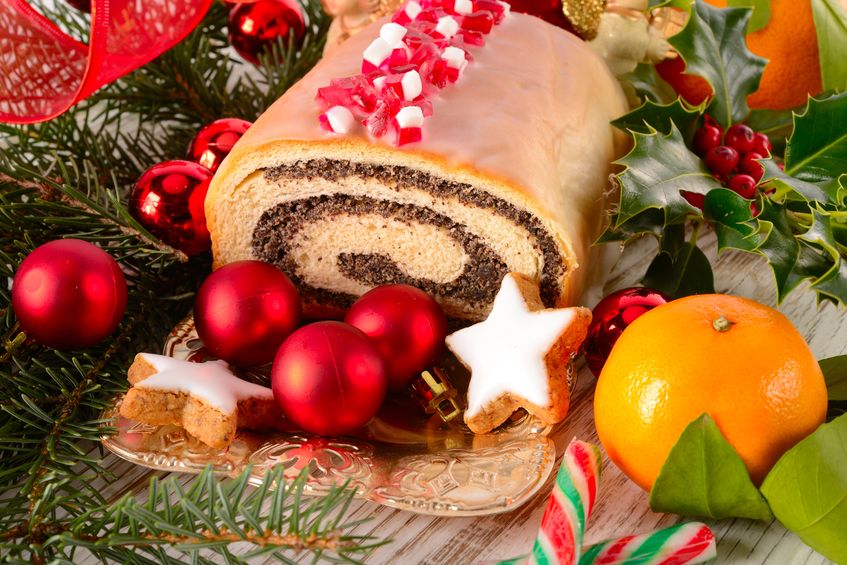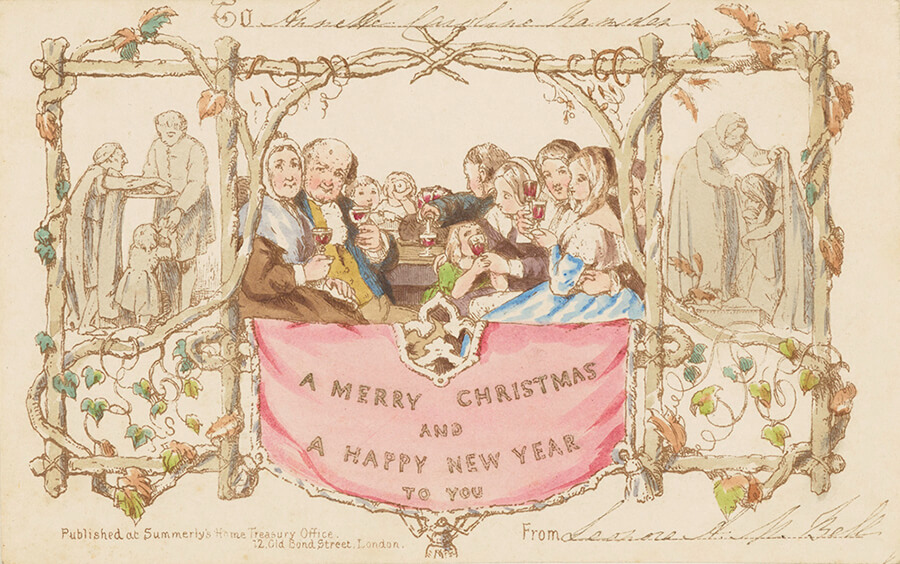Saint Lucia was a virgin martyr who was blinded before her execution in 304 — thus she is sometimes represented in art holding a plate containing her eyeballs. She was venerated first in Syracuse, Sicily where she died but her cult spread throughout Europe, reaching even Sweden where she is celebrated on her feast day, December 13.

She is usually portrayed as a young woman, sometimes wearing a crown of candles, but in areas of Northern Italy, Santa Lucia appears as a veiled blind old woman. On December 13, riding a cart and donkey, accompanied by her helper Castaldo, she brings gifts to children.
A pre-Christmas tradition for children in Bergamo is to visit the church of the Madonna dello Spasimo with letters telling Lucia what they would like to receive for Christmas. There they lay letters containing their Christmas wish lists next to the altar containing the statue of the Blessed Virgin of Spasimo, also known as Santa Lucia. In other northern Italian cities there are other designated areas for the collection of such requests.
On the eve of her feast day children leave coffee, tea, or biscuits for Santa Lucia, a carrot or hay for the donkey and a glass of wine for Castaldo. Should they be so bold as to stay up to try and catch the saint delivering the presents, they risk being blinded by Lucia with ashes.
